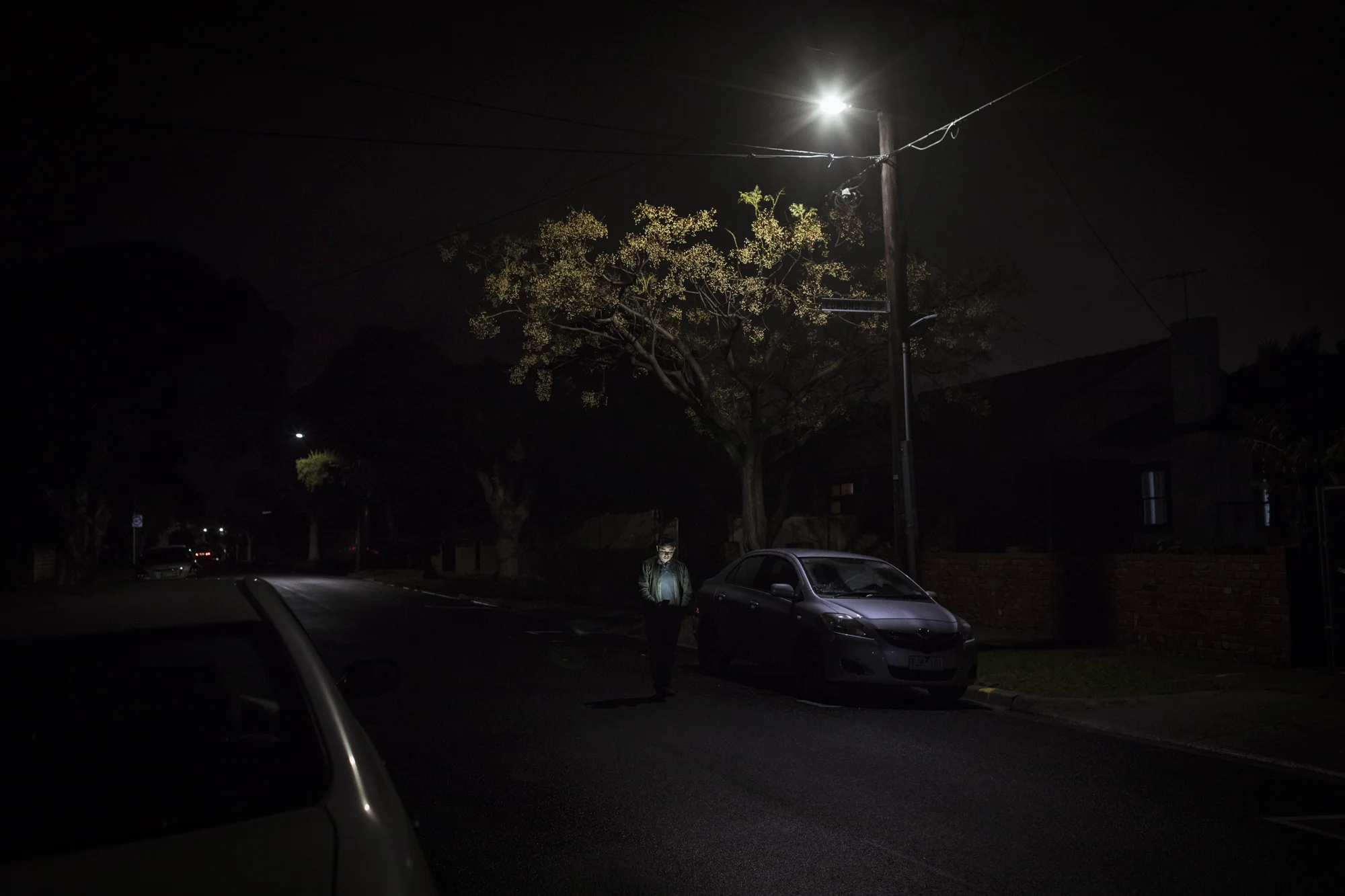


"Money is so tight. I’m worried I won’t find work, find a house, follow the rules of my visa. There is a lot of stress. I have to support my family, but not only my family. Other people ask for money as well. Sometimes I send $400, sometimes $500 a month for my mum, pay my bills - rent and food, and car - and I’m finished. I’ve got only $40 in my bank account.” Due to the stress of his situation, Mohamad Yunus often gets up in the middle of the night and drives to Idriss' Rohingya Restaurant, for the company of his community.

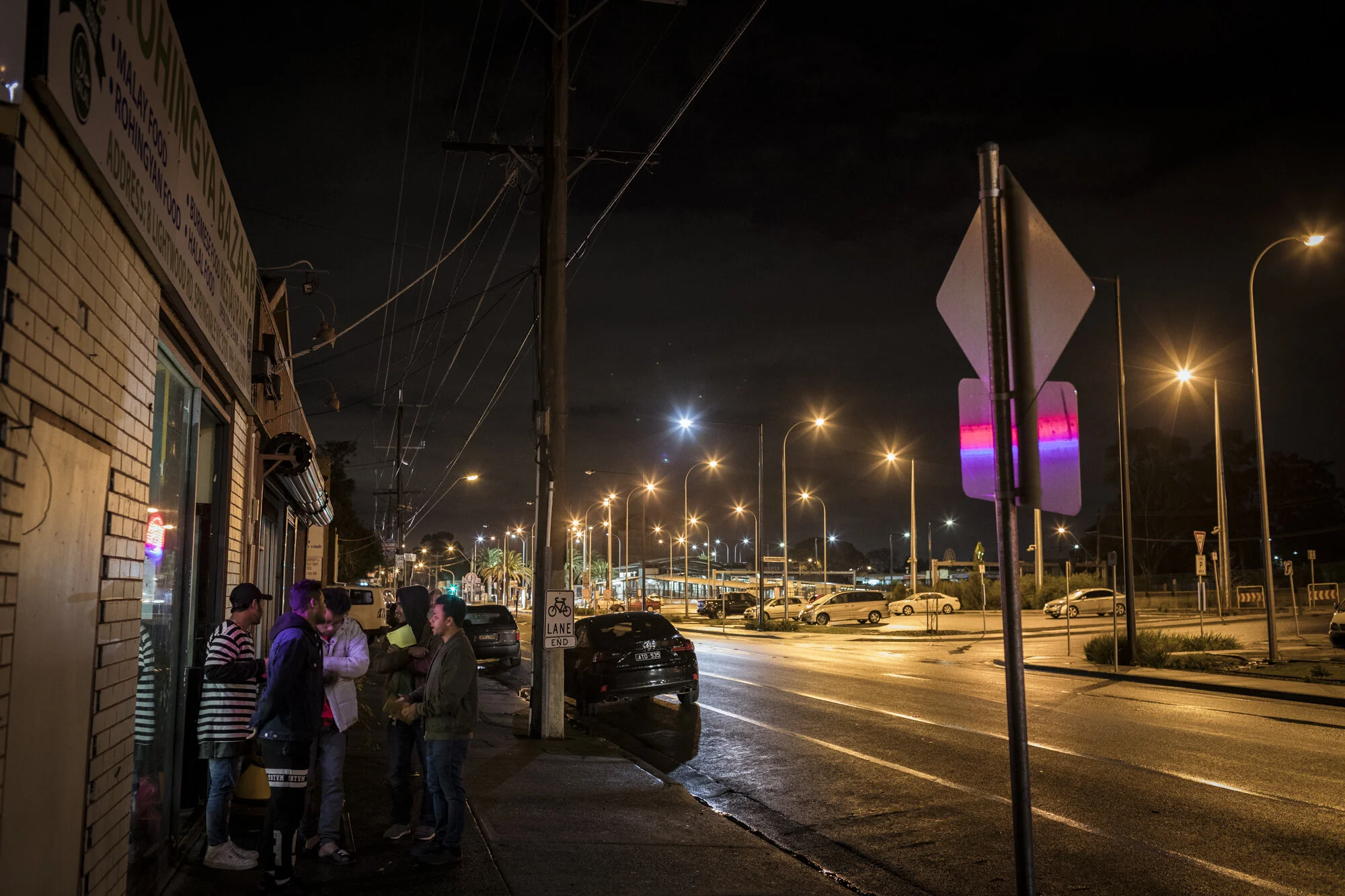
Mohamad Yunus meets up with members of the Rohingyan community to discuss an upcoming wedding.
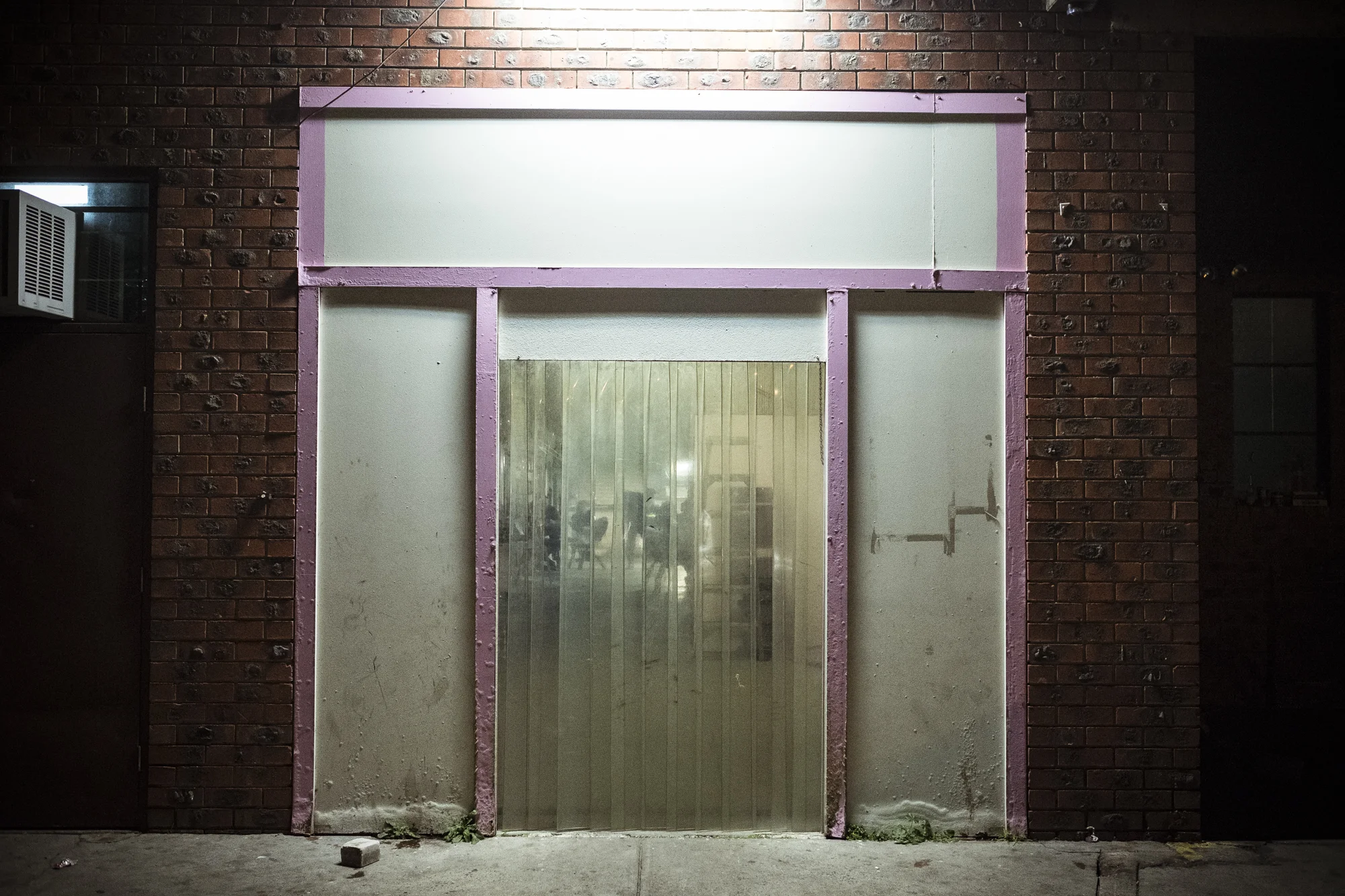
Mohammad Idris Rohingyan Restaurant and cafe in Springvale is a meeting place for the small community of Rohingya who have settled in Melbourne’s South-East. It is a place, for the mostly males, to shoot pool, play cards, watch television and socialise with members of their community. A former meat packing factory, the cafe becomes a centre-point for information regarding jobs, accommodation and news of home.
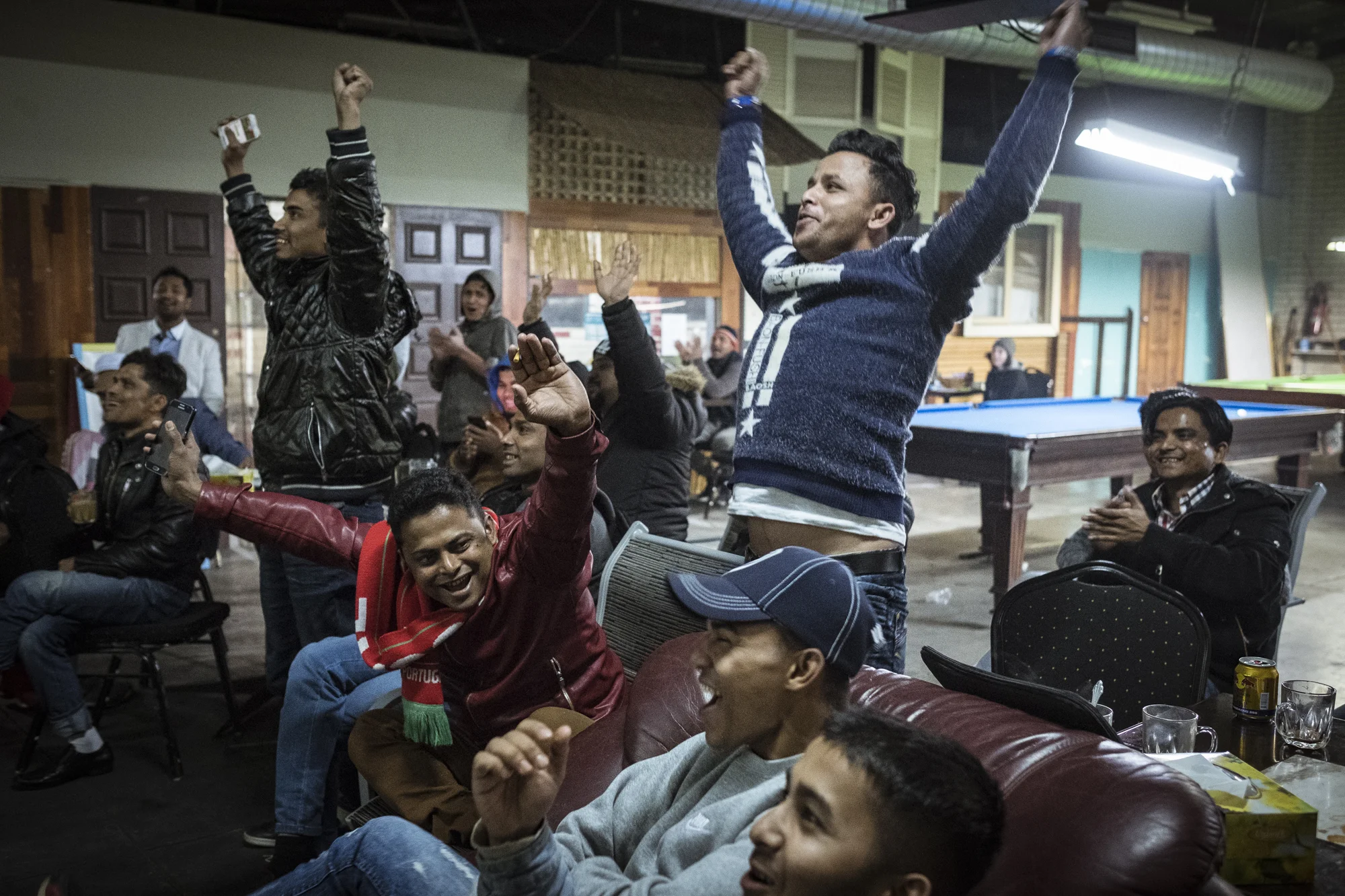
“In my country, it’s not that much fun, but still when you score a goal you feel very happy. You celebrate a lot. It’s very exciting. I like this—playing soccer, watching soccer." Yunus and members of Melbourne’s Rohingyan community celebrate as Australia scores a goal in their world cup match versus Denmark at the Rohingyan Restaurant and cafe.
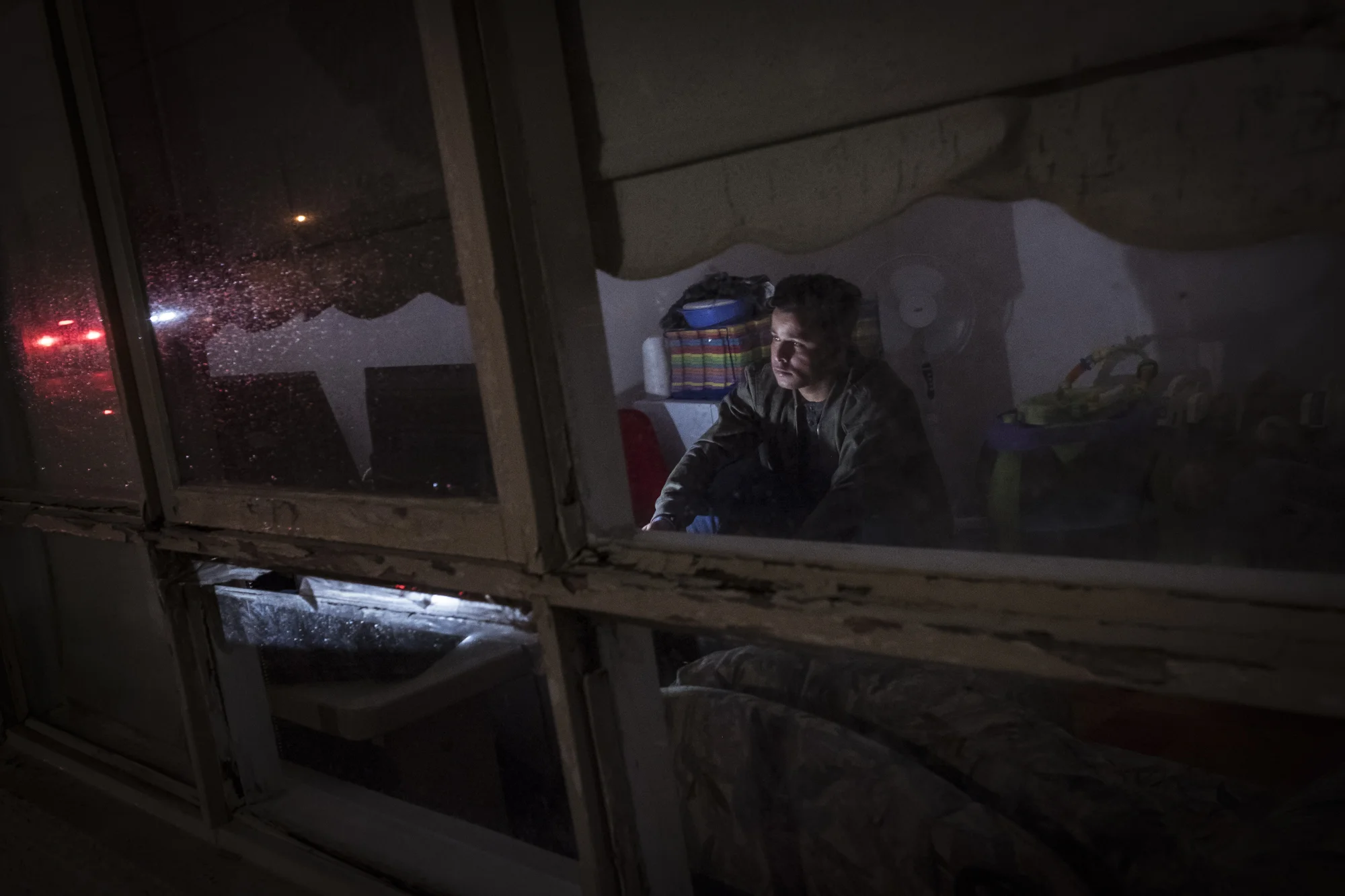
"In Australia, you can have a good life. If you are working and making money you can do whatever you want. If see things this way, life is settled. But the other way is that you don’t have parents here. You don’t have anyone to help you if you want to study. If you think that way, it’s a worry. Sometimes I think that way. Most of the time I can’t sleep, because of thinking too much." Yunus will often suffer insomnia and be unable to sleep, leading to late nights watching television which compounds his stress.
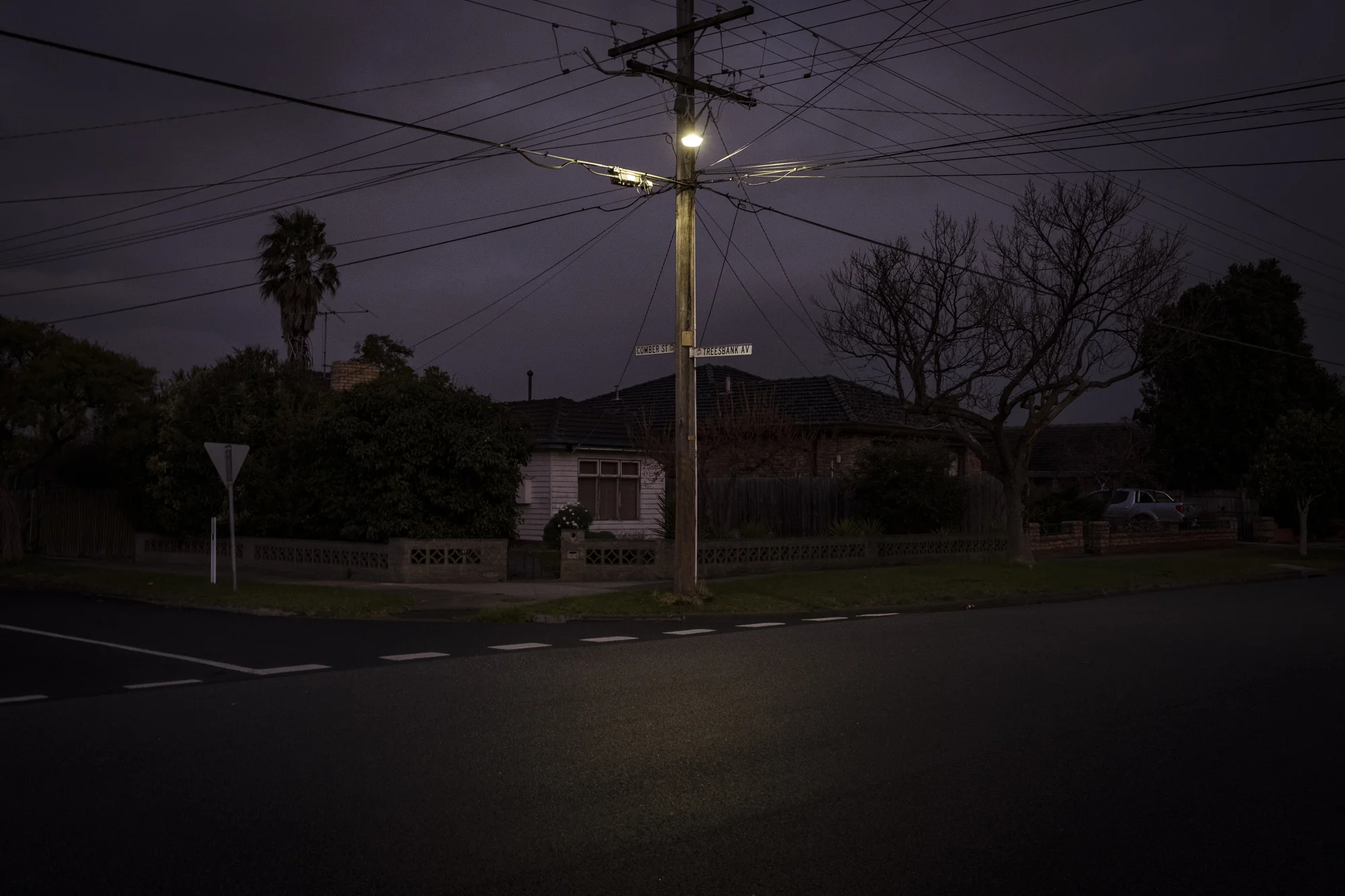
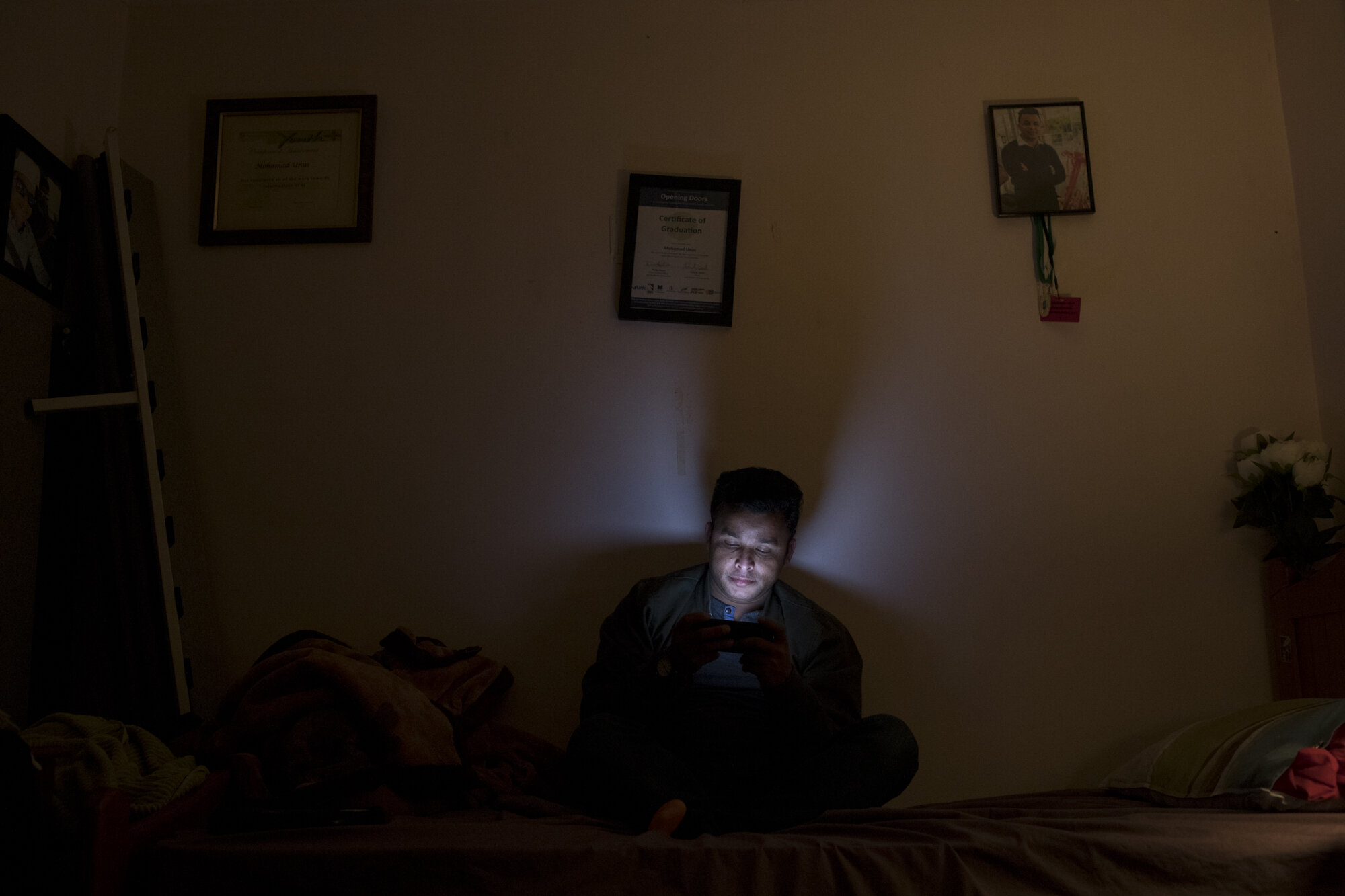
"When I get sleepy I throw my phone away and go to sleep, and then suddenly I wake up and I can’t sleep again. This is a problem I have. Sometimes after the whole night, I have to work without sleeping. One time it happened last year. I was very stressed and sick when my family left Burma. That time was very sad, very sad. My hair was falling out! I ran my hands through my hair and it came out in my palms. For the stress."
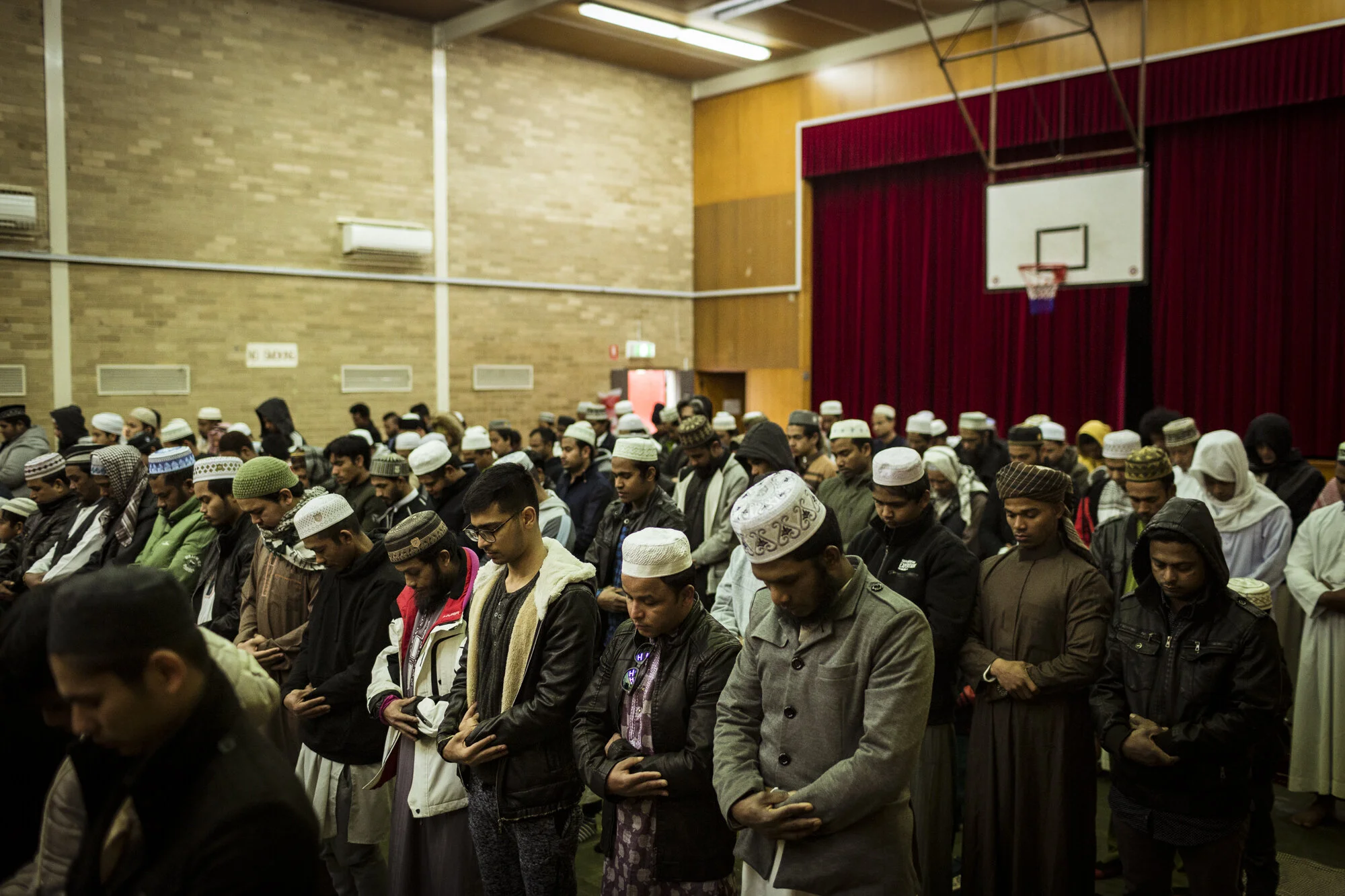
“Today is Qurban celebration, part of Eid al-Adha means you are doing something special for charity. People who have money, they sacrifice a bull, or cow. They pray and they give to poor people. Other people make special lurefedah, by hand and people will visit and eat. You don’t have to be invited. Usually we meet mum and say hello. Today I’m going to pray in Springvale. All this, today, it reminds me of when I was with family.” The small Rohingyan community that have settled in the outer suburbs of Melbourne pray in a community basketball court for Eid al Adha, the festival of sacrifice.
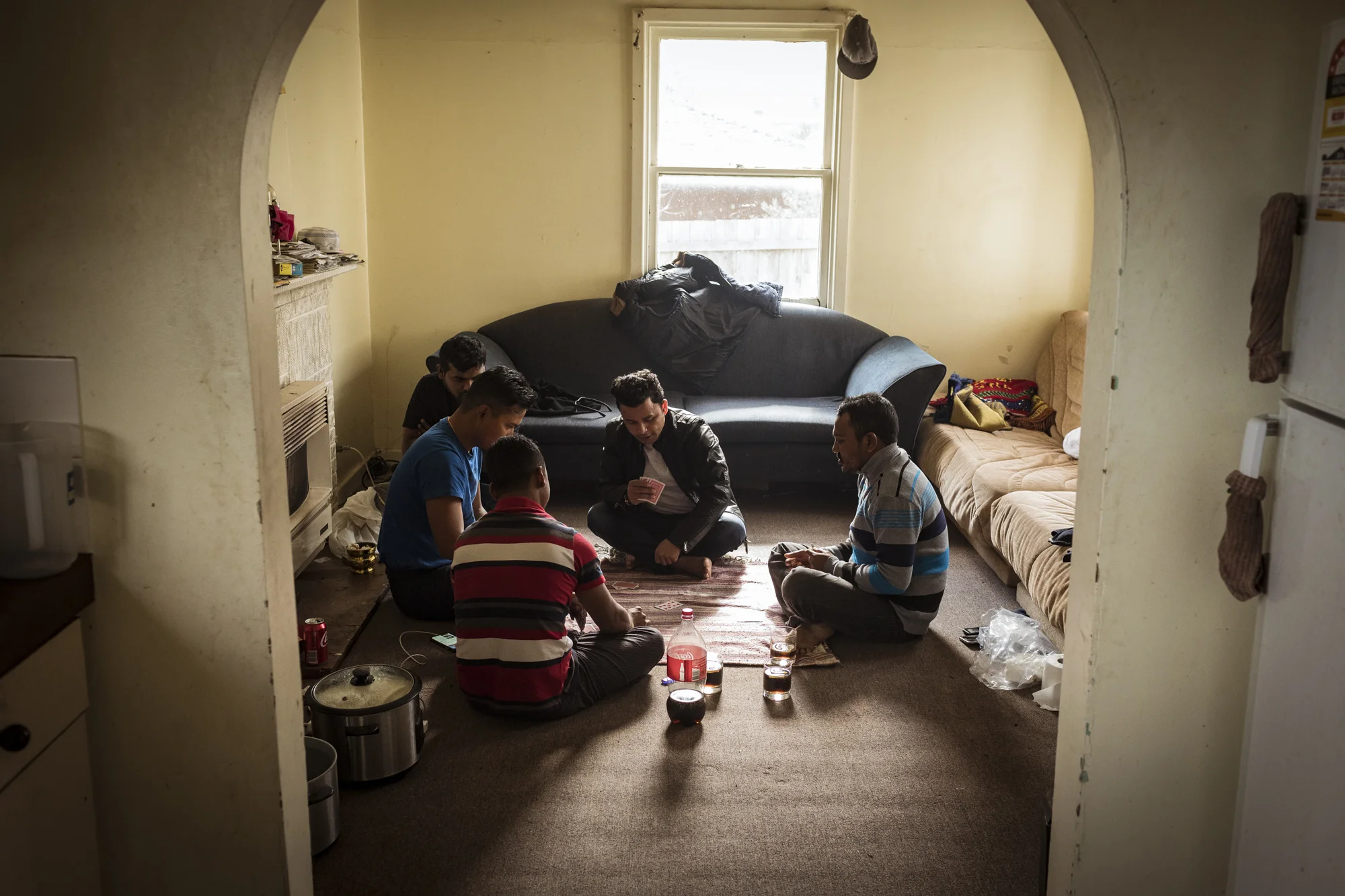
“We have applied for a few houses before, but we didn’t get a response, so I think maybe they don’t trust us? We provided everything, details like payslips, bank statements, our IDs. You need 100 points. So we sent IDs, all details, and still we didn’t get any." Yunus plays cards with his friends and temporary housemates in Springvale. He is living with the added financial and travel burden of living between houses in Geelong and Springvale whilst searching for work in Geelong to comply with his visa regulations.
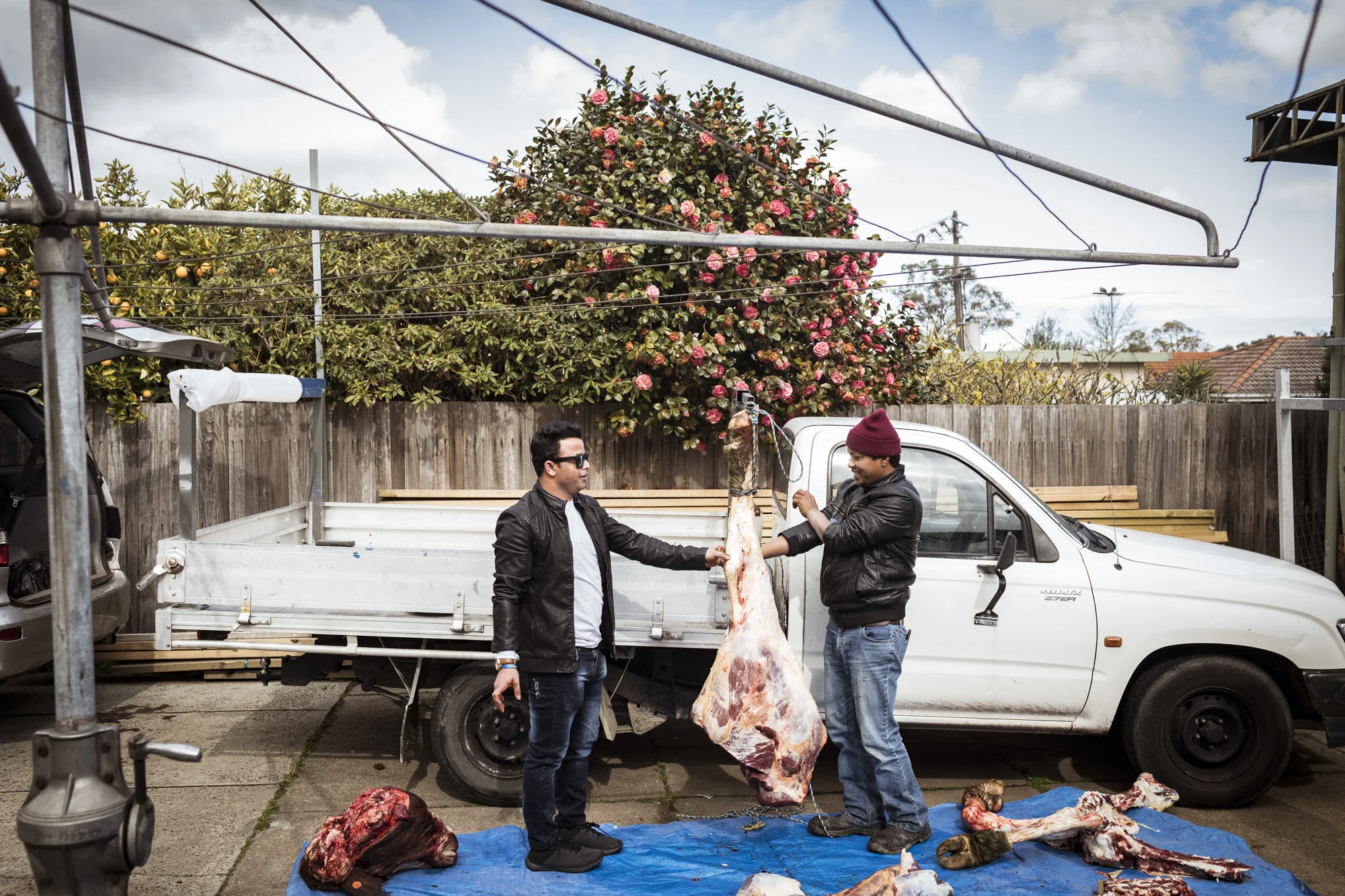
“I want to do everything I can to live here. It’s open – it’s free. I want to become someone who helps people. Gathering together for festival; share with each other. That’s what we did in our country. We tried to help poor people because they can’t celebrate. I’d like to do that also here. We have to look after each other – if we have money or not, still we can make everyone happy." Mohamad Yunus helps members of the local Rohingyan community carve up a sacrificial cow as part of Eid al Adha in Springvale, Melbourne
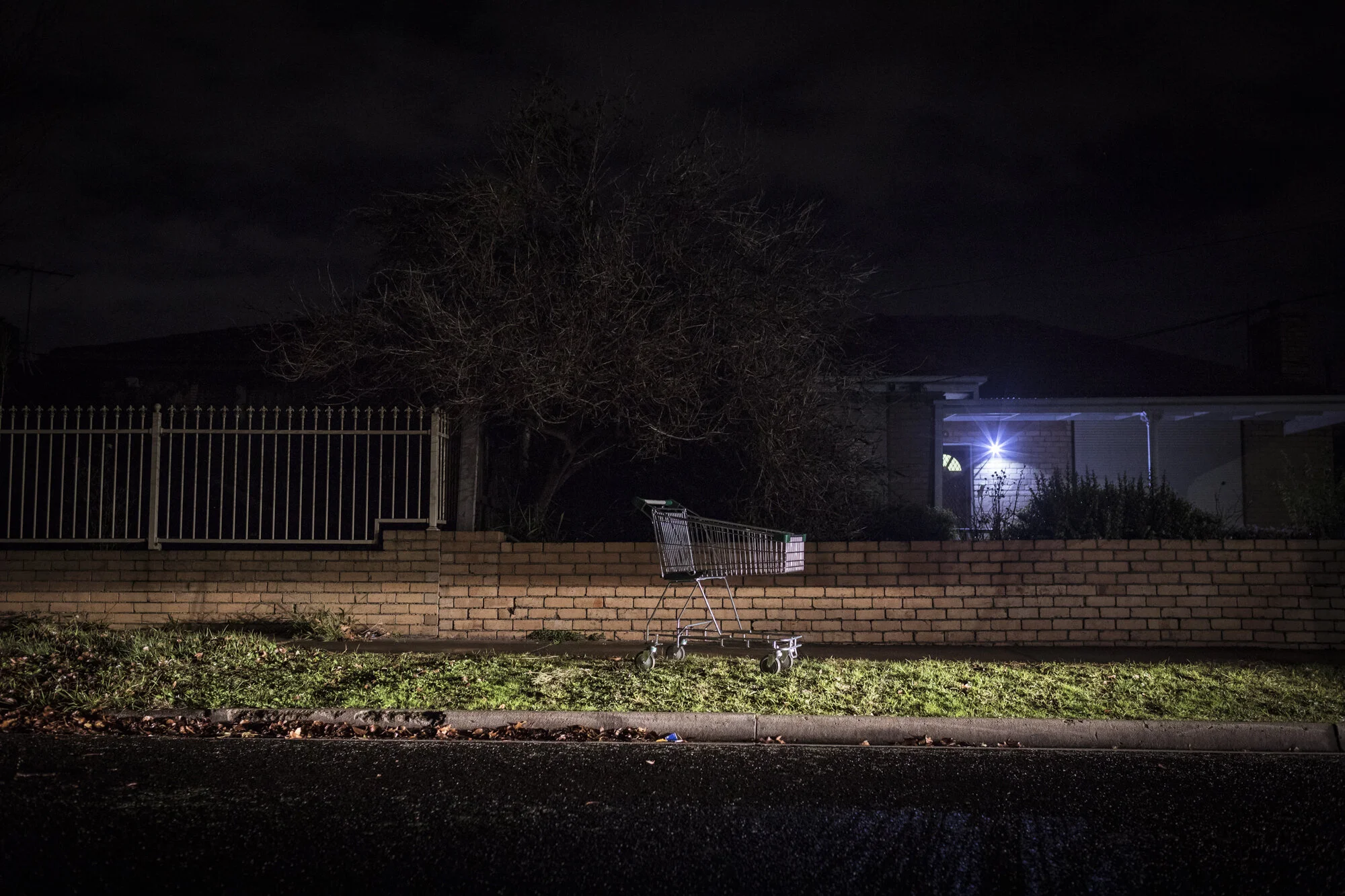

“My family feel guilty if they explain to me what the situation is in the Bangladesh camp, and I’m here, and I feel so sad when I think about them. And then something like this happens - I see a canola field like my father used to farm in my country and I feel my family is close to me. When I see that, I remember all the life that passed away. I remembered what we used to do and it made me feel closer to them. It makes me feel happy. But it also makes me cry.
My family are survivors.”














